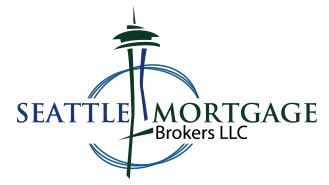Flip On Flipping The data analysis company CoreLogic says "flipping" is back. This fairly well-known…
Some Mortgages Face Higher Fees Under New Budget
The Trump Administration said it wanted to get Fannie Mae and Freddie Mac out of government control. Okay. But in the meantime, it’s being unabashed about trying to use revenue from U.S.-backed mortgage guarantors to reduce the deficit.
In the 2019 spending plan, the administration asks for Congress to raise the fees that Fannie Mae and Freddie Mac charge to back payments on mortgage-backed securities by a 0.1 percentage point, a move that could reduce the federal budget deficit by $25.7 billion over the next 10 years.
The budget plan, while unlikely to be actually implemented by Congress, does provide a small window into what the Trump administration thinks about the futures of Fannie Mae, Freddie Mac and the rest of the mortgage industry. It shows that the administration wants to reduce the government meddling in the mortgage market and possibly pull back on funding for affordable housing.
Affordable Housing
Trump’s request calls for Fannie Mae and Freddie Mac to stop allocating money to trust funds used to promote affordable housing.
After more than a year into this administration, the Treasury Department has revealed some of what it wants to see happen with Fannie Mae and Freddie Mac. Recently, officials have said they want to work with Congress on housing-finance reform legislation. Though in a recent hearing, Treasury Secretary Steven Mnuchin has indicated that he has authority to implement some reforms without Congress.
Private shareholders of Fannie Mae and Freddie Mac stocks, including some hedge funds, have pushed for the administration to move and release the companies from government control without Congress. But if the administration does have any plans as such, they’re not indicated in the budget.
Mnuchin and other officials have said that one of their goals is also to increase the number of mortgages made that don’t have backing from Fannie, Freddie or other government-linked agencies. The private mortgage market, which other than for high-balance jumbo mortgages, has been moribund since the financial crisis.
‘Private Lenders’
A budget document released Monday said the administration thinks raising Fannie Mae and Freddie Mac’s fees “would help to level the playing field for private lenders.”
Even though Congress is not likely to implement the proposals, they could signal steps the Trump administration may try and take when they appoint the director of the Federal Housing Finance Agency. The FHFA, which controls Fannie Mae and Freddie Mac until 2019, is helmed by Mel Watt, an appointee under President Obama.
Bailout Arrangements
Under the terms of the bailout arrangement, Fannie Mae and Freddie Mac send nearly all of their profits to the federal government, while the Treasury provides the companies with money when their net worth falls below zero. The companies may need to draw on that support for the first time since 2012, as a result of the tax cuts signed into law in December. The companies have assets they can use to offset taxes that became less valuable as a result of the tax cut, resulting in a one-time hit to earnings.
In the budget plan, the administration said it expects that issue to result in gains of about $5.1 billion, based on publicly available information. The Trump administration also said it expects Fannie Mae and Freddie Mac to pay the government nearly $185 billion over the next 10 years. The budget said the administration still wants to work with Congress on housing-finance reform and said such reform could affect its projections.
*This article does not represent legal interpretation or advice. This is not a commitment to make a loan. Loans are subject to borrower qualifications, including income, property evaluation, sufficient equity in the home to meet LTV requirements, and final credit approval. Approvals are subject to underwriting guidelines, interest rates, and program guidelines, and are subject to change without notice based on applicant’s eligibility and market conditions. Refinancing an existing loan may result in total finance charges being higher over life of loan. Reduction in payments may reflect longer loan term. Terms of the loan may be subject to payment of points and fees by the applicant. NMLS: LO# 305371 MB# 761615


